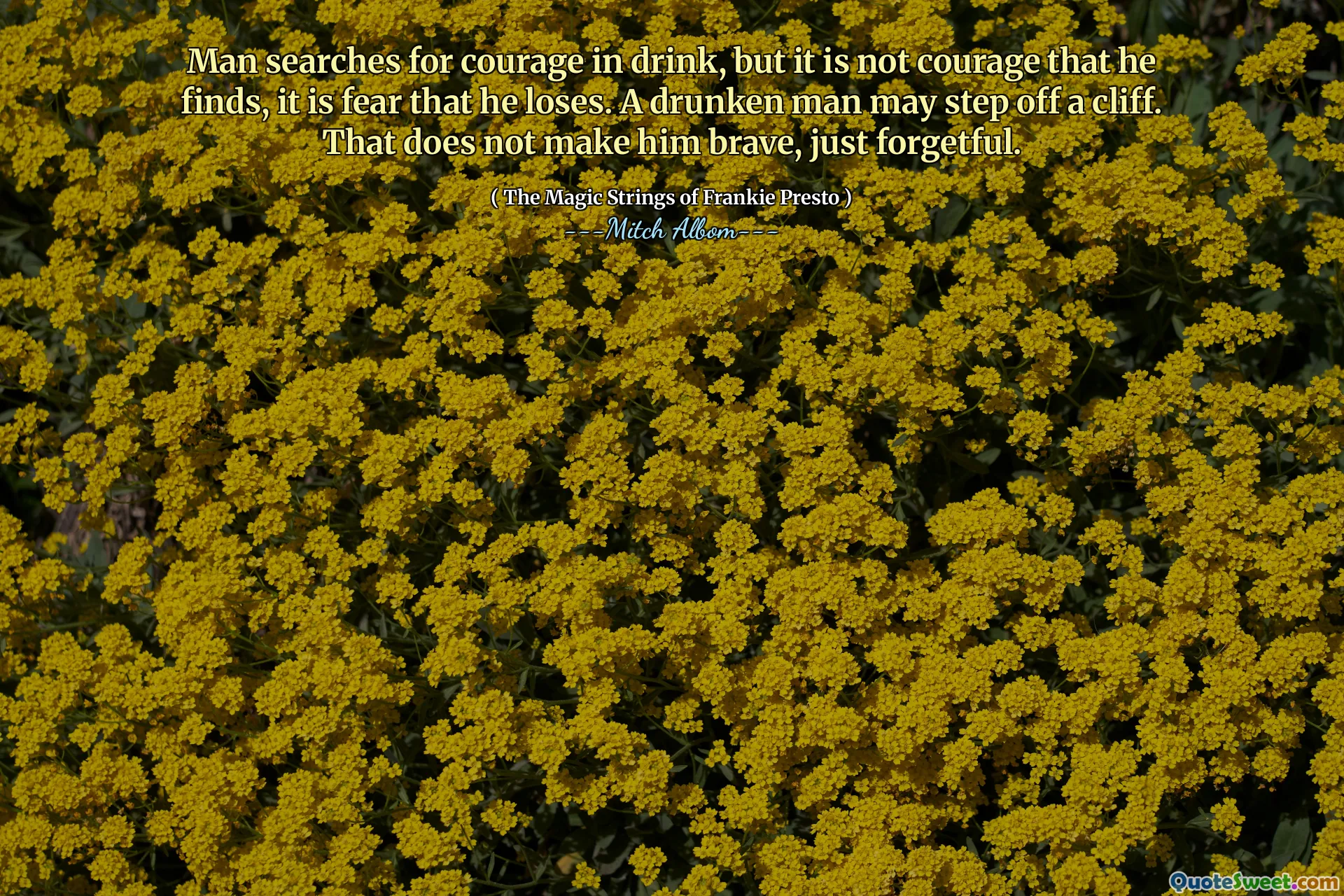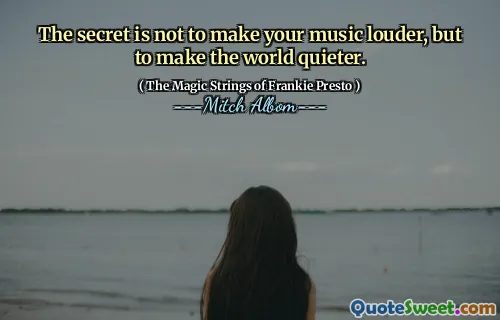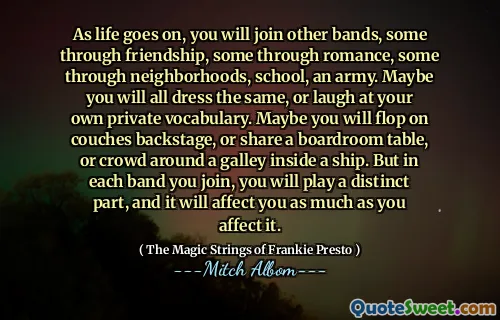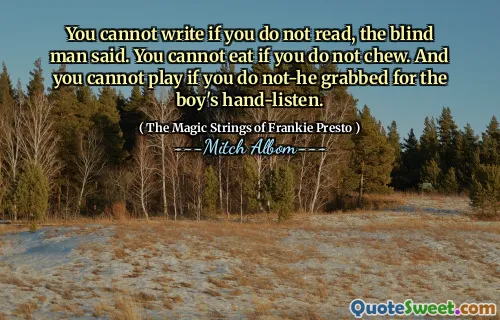
Man searches for courage in drink, but it is not courage that he finds, it is fear that he loses. A drunken man may step off a cliff. That does not make him brave, just forgetful.
The quote emphasizes that individuals often turn to alcohol seeking bravery, yet what they typically find instead is a loss of fear rather than the acquisition of true courage. This highlights a fundamental misconception about the effects of drinking. Instead of fostering bravery, alcohol creates a temporary escape from anxiety and inhibitions, which can lead to reckless behavior.
Moreover, the example of a drunken man stepping off a cliff illustrates that such actions stem not from courage, but from a state of forgetfulness. This serves as a poignant reminder that genuine courage is not about the absence of fear; rather, it's about confronting and managing that fear responsibly. The quote critiques the false sense of bravery that alcohol might provide, promoting the idea that true strength comes from facing one's challenges soberly.











